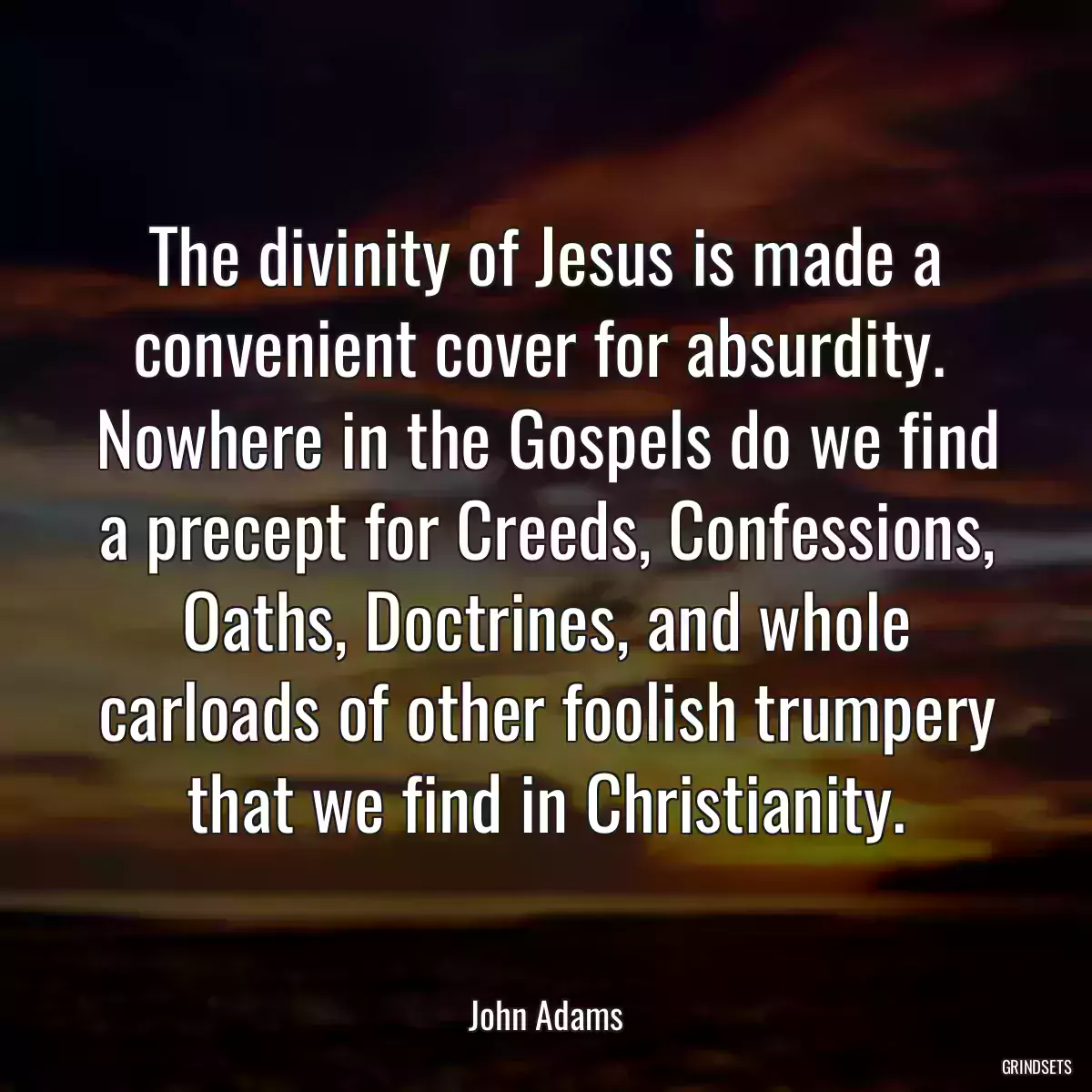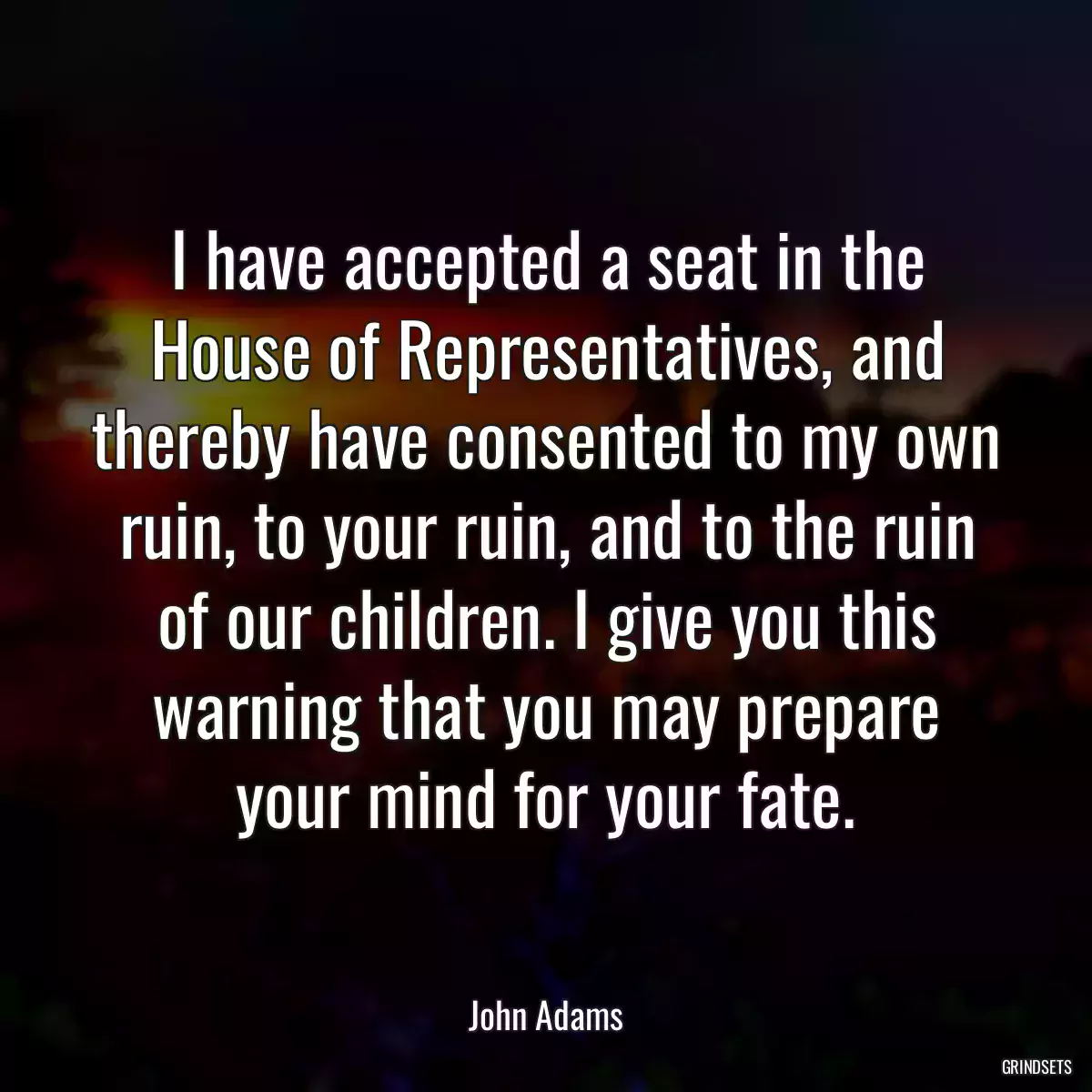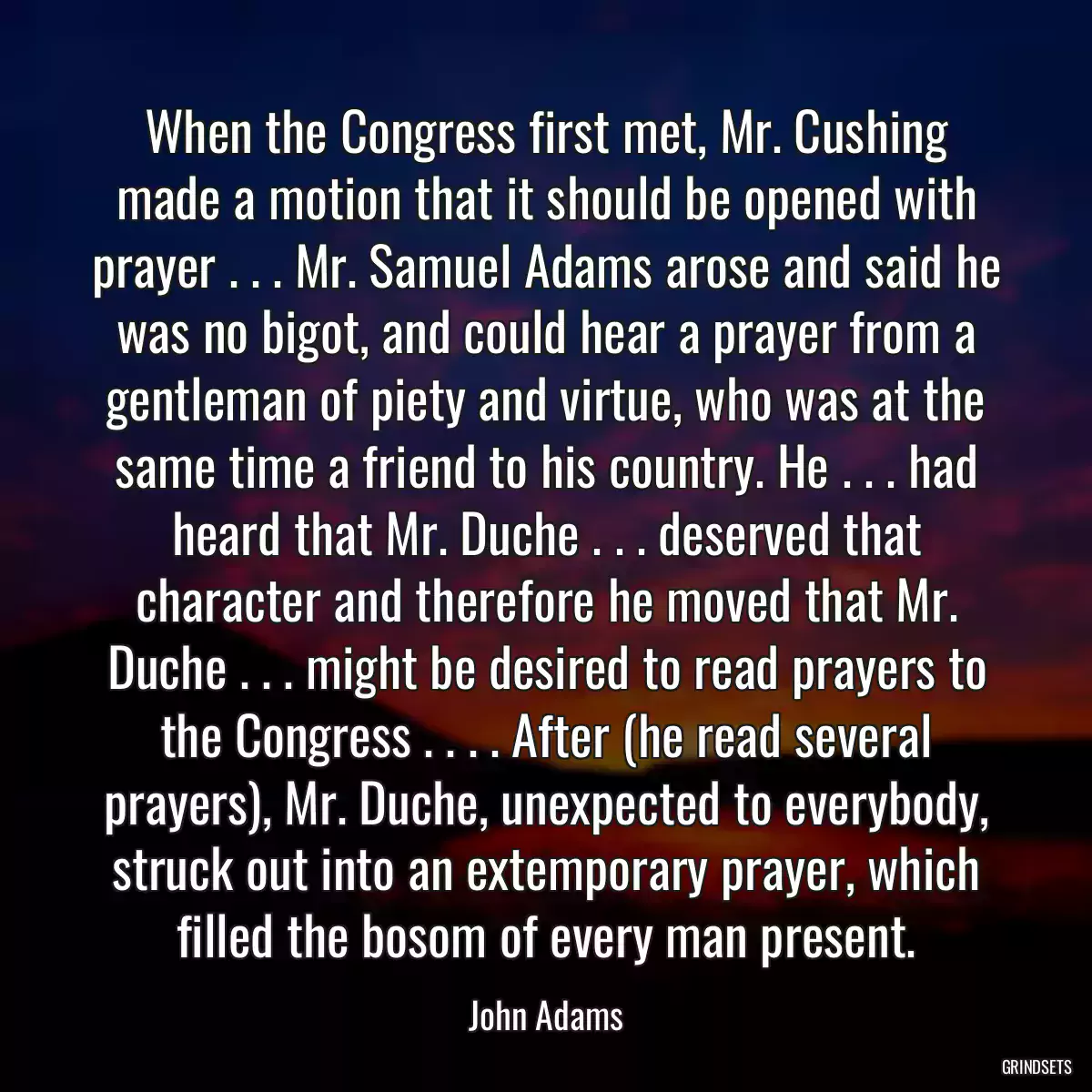
Quotes John Adams - page 2
Find dozens of John Adams with images to copy and share.

Mystery is made a convenient Cover for absurdity.
It would be an absurdity for jurors to be required to accept the judge's view of the law, against their own opinion, judgment, and conscience.
Major Greene this evening fell into some conversation with me about the Divinity and satisfaction of Jesus Christ. All the argument he advanced was, "that a mere creature or finite being could not make satisfaction to infinite justice for any crimes," and that "these things are very mysterious." Thus mystery is made a convenient cover for absurdity.
You may also like
Since natural law was thought to be accessible to the ordinary man, the theory invited each juror to inquire for himself whether a particular rule of law was consonant with principles of higher law. This view is reflected in John Adams' statement that it would be an 'absurdity' for jurors to be required to accept the judge's view of the law, 'against their own opinion, judgment, and conscience.'
Abuse of words has been the great instrument of sophistry and chicanery, of party, faction, and division of society.
Public affairs go on pretty much as usual: perpetual chicanery and rather more personal abuse than there used to be.
I almost shudder at the thought of alluding to the most fatal example of the abuses of grief which the history of mankind has preserved - the Cross. Consider what calamities that engine of grief has produced!
My best wishes, in the joys, and festivities, and the solemn services of that day on which will be completed the fiftieth year from its birth, the independence of the United States. A remarkable epoch in the annals of the human race, destined in future history to form the brightest or the blackest page, according to the use or the abuse of those political institutions by which they shall, in time to come, be shaped by the human mind.

We may... affirm that the balance of power in a society accompanies the balance of property in land. The only possible way, then, of preserving the balance of power on the side of liberty and public virtue is to make the acquisition of land easy to every member of society; to make a division of the land into small quantities, so that the multitude may be possessed of landed estates.
The balance of power in a society accompanies the balance of property in land.
Before any great things are accomplished, a memorable change must be made in the system of education...to raise the lower ranks of society nearer to the higher.
But before any great things are accomplished, a memorable change must be made in the system of Education and knowledge must become so general as to raise the lower ranks of Society nearer to the higher. The Education of a Nation, instead of being confined to a few schools & Universities, for the instruction of the few, must become the National Care and expence, for the information of the Many.
Suppose a nation, rich and poor, high and low, ten millions in number, all assembled together; not more than one or two millions will have lands, houses, or any personal property; if we take into the account the women and children, or even if we leave them out of the question, a great majority of every nation is wholly destitute of property, except a small quantity of clothes, and a few trifles of other movables.
The consequences arising from the continual accumulation of public debts in other countries ought to admonish us to prevent their growth in our own.
A lawyer once told a jury that the person his client stood accused of having killed was about to walk through the courtroom door. When the jurors looked startled, the lawyer asserted that if those jurors had wondered, even for one second that the victim might appear, that belief constituted enough reasonable doubt for them to find his client innocent.
America is destined to be peopled by one nation, speaking one language, professing one general system of religious and political principles, and accustomed to one general tenor of social usages and customs.
You may also like

When the Congress first met, Mr. Cushing made a motion that it should be opened with prayer . . . Mr. Samuel Adams arose and said he was no bigot, and could hear a prayer from a gentleman of piety and virtue, who was at the same time a friend to his country. He . . . had heard that Mr. Duche . . . deserved that character and therefore he moved that Mr. Duche . . . might be desired to read prayers to the Congress . . . . After (he read several prayers), Mr. Duche, unexpected to everybody, struck out into an extemporary prayer, which filled the bosom of every man present.
The law no passion can disturb. 'Tis void of desire and fear, lust and anger. 'Tis mens sine affectu, written reason, retaining some measure of the divine perfection. It does not enjoin that which pleases a weak, frail man, but, without any regard to persons, commands that which is good and punishes evil in all, whether rich or poor, high or low.